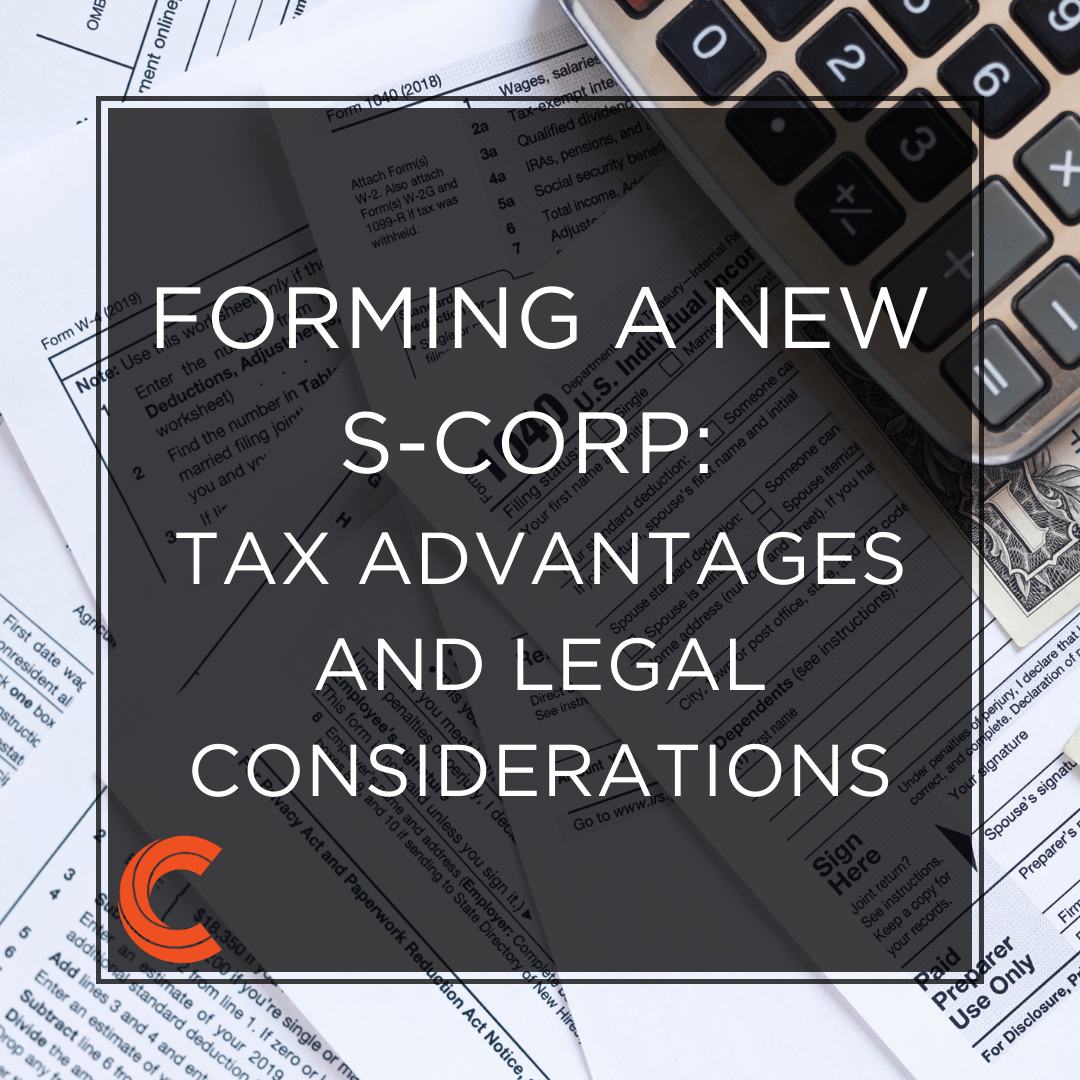Choosing the right business structure is crucial for any entrepreneur. For some businesses, an S corporation (S-Corp) can offer a unique combination of tax benefits and liability protection. This blog post explores the key features of S-Corp formation, highlighting its tax advantages and legal considerations.
What is an S-Corp?
An S-Corp is a legal business structure that combines the liability protection of a corporation with the tax benefits of a pass-through entity, like a partnership. Unlike a traditional C corporation, profits and losses of an S-Corp “pass through” to the shareholders’ personal tax returns. This avoids double taxation, where corporate income is taxed at the corporate level and again at the shareholder level when distributed as dividends.
Tax Advantages of an S-Corp
S-Corps offer several tax advantages for qualifying businesses:
- Pass-Through Taxation: Corporate income (profits) and losses are passed through to shareholders’ personal tax returns, avoiding double taxation.
- Reasonable Salaries and Dividends: Shareholders who actively work for the S-Corp can be paid a reasonable salary, which is tax-deductible to the corporation. Shareholders can also receive dividends, which are taxed at a lower capital gains rate compared to ordinary income tax rates, under certain conditions.
Qualifying for S-Corp Status
To qualify for S-Corp status, a corporation must meet specific Internal Revenue Service (IRS) requirements. Here are some key criteria:
- Number of Shareholders: An S-Corp can have a maximum of 100 shareholders who are U.S. citizens or permanent residents.
- One Class of Stock: An S-Corp can only have one class of stock with identical voting rights.
- Eligible Shareholders: Only individuals and certain trusts can be S-Corp shareholders. Corporations, partnerships, and LLCs cannot be shareholders.
Legal Considerations for S-Corps
While S-Corp status offers tax benefits, there are also legal considerations:
- Formalities: S-Corps must follow stricter formalities compared to sole proprietorships or partnerships. This includes holding annual shareholder meetings and maintaining detailed corporate records.
- Payroll Taxes: S-Corp shareholders who actively involve themselves in the business must pay payroll taxes on their salary, similar to employees.
- Professional Help Recommended: Given the specific requirements and ongoing compliance needs, consult a business lawyer or tax advisor for guidance on forming and maintaining an S-Corp.
Is an S-Corp Right for Your Business?
The decision to form an S-Corp depends on your business structure, tax situation, and future growth plans. Here are some questions to consider:
- Do you have multiple owners who actively work for the business?
- Do you expect your business to generate significant profits?
- Are you comfortable with the formalities and compliance requirements of an S-Corp?
Consulting with a business law firm like Carbon Law Group can be invaluable in determining if an S-Corp is the right choice for your business. Their experienced attorneys can help you:
- Evaluate your business structure needs and tax implications.
- Determine if your business qualifies for S-Corp status.
- Draft and file the necessary paperwork with the IRS.
- Advise on ongoing S-Corp compliance requirements.
Conclusion
Forming an S-Corp can be a strategic decision for businesses aiming to optimize taxes and protect personal assets. While tax benefits are attractive, understanding the legal considerations and ongoing compliance requirements is crucial. Partnering with a business law firm like Carbon Law Group can provide valuable guidance throughout the process, ensuring you make an informed decision and navigate S-Corp formation successfully.





